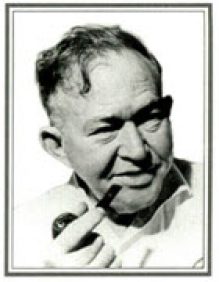Joel was one of the most prominent figures in the rescue of Hungarian Jews. His father was the founder of the telephone company in Budapest. When Joel was ten, his family moved to Germany and settled down in Erfurt. After he graduated from high school, Joel traveled across the United States. In 1932 he returned to Erfurt. In 1933 he was arrested for leftwing activities and spent a year in prison. In 1934 Joel was expulsed from Germany for being a Jewish Hungarian citizen. In 1938 his mother and sisters fled Germany and arrived in Budapest.
Joel was a “Poalei Tzion” activist, was elected to the central committee of “Ihud Mapa’i” and to the executive committee of the Zionist Organization in Hungary. Together with his wife, Hansi, he gave assistance to the refugees who arrived from Germany and Austria and later from Poland and Slovakia. He was a member of the Relief and Rescue Committee and, as such, he made contact with the representatives of the Jewish Yishuv in Eretz Israel (Palestine) who were based in Istanbul.
After the German invasion of Hungary on 19.3.1944, Joel had contacts with the S.S., mainly Adolf Eichmann, in order to save Jews’ lives. Due to his personality and his perfect German, in the eyes of the Germans he was an appropriate representative. On 8.5.1944 Eichmann invited Joel to a meeting and made him an offer: the lives of a million Jews in return for supplies and money. Eichmann even suggested that Brand travel abroad in order to make contact with Jewish organizations and close the deal.
Brand arrived in Istanbul on 19.5.1944 while his wife and two sons were held hostages in case he did not return to Hungary. However, he was not allowed to enter Istanbul, was arrested by the British and transferred to Cairo where he was imprisoned. Brand sat in an Egyptian prison from the
end of May until October 6th. On October 7th, 1944 he arrived in Eretz Israel (Palestine) where he met with central figures of the Jewish Yishuv. He blamed them for not giving him any assistance. Teddy Kolek, Eliahu Golomb and others replied that his mission was not a failure since it made it possible to break the wall of silence in London, New York and around the free world.
Joel Brand’s activities are described in detail in his book “On a mission for the sentenced to death”. Brand died in Frankfurt in 1964 from a heart attack while testifying against Nazi criminals.


